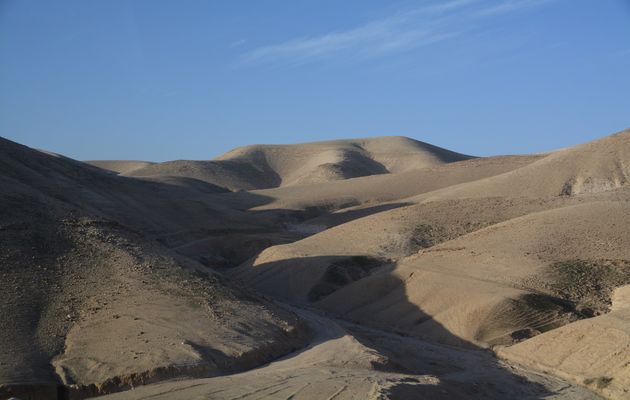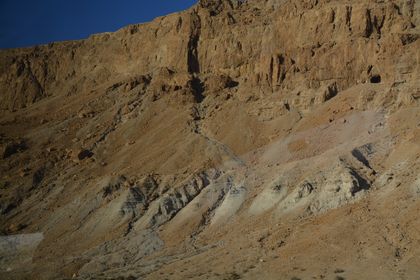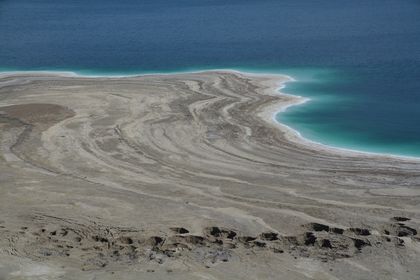The Dead Sea area - situated some 400 metres below sea level - only gets 150 to 200 per square metre per year.
 Photo: Antonio Cruz
Photo: Antonio Cruz
Then I will send rain on your land in its season, both autumn and spring rains (Deuteronomy 11:14)
The arid land of Judea sees rain only very occasionally. The clouds laden with water arrive in the Holy Land in the rainy season (from December to February) from the Mediterranean Sea. The mountainous central region, where Jerusalem is located, can get 500 to 800 millimetres of rain per square metre per year. However, the Dead Sea area (situated some 400 metres below sea level) only gets 150 to 200 per square metre. And to the south of the Dead Sea, and in the Arabá valley this drops to a mere 30 millimetres per square metre per year. What is the reason for this huge disparity in such a small country?
 Photo: Antonio Cruz
Photo: Antonio CruzAlmost all the rain water that falls in the mountainous centre returns to the Mediterranean by run-off. Only a small part of the rain that falls on Jerusalem slides off the opposite eastern slope into the Dead Sea, eroding the Judean desert, and generating torrents and floods with great erosive power, like in the photograph. The warm, dry atmosphere of these regions was what enabled the Dead Sea scrolls that were found in different caves to be so well conserved.
 Photo: Antonio Cruz
Photo: Antonio CruzDespite everything, the Dead Sea evaporates very quickly and the level is falling continuously. This causes subsidence and deep holes which can be seen from a great distance. However, it is still possible to observe its blue waters, punctuated here and there by the white croutons of salt. And to bathe in them, of course.

Las opiniones vertidas por nuestros colaboradores se realizan a nivel personal, pudiendo coincidir o no con la postura de la dirección de Protestante Digital.
Si quieres comentar o